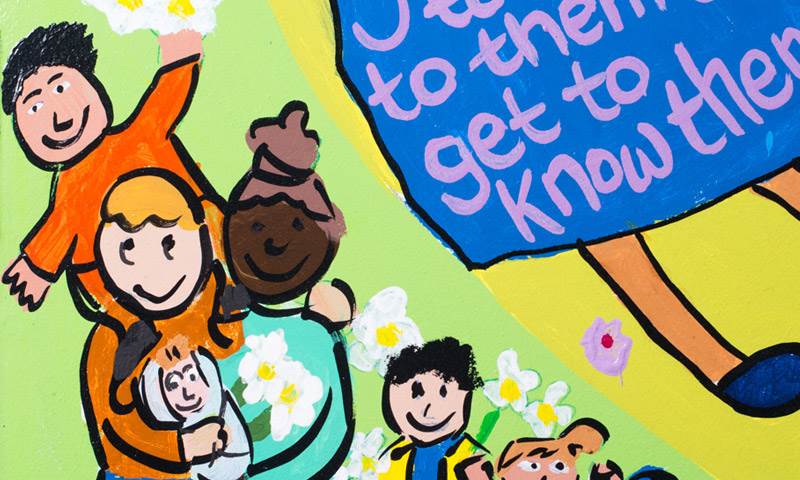Our website uses Cookies - by using this site or closing this message you're agreeing to our Terms & Conditions, Cookie Policy and Privacy Policy
xJustice Committee raises concerns about children in detention with Scottish Government and Scottish Prisons Service
Date: 25th June 2020
Category:
Children of prisoners

In a letter to Humza Yousaf MSP, Cabinet Secretary for Justice, and Teresa Medhurst, Acting Chief Executive of Scottish Prisons Service (SPS), the Justice Committee sought the views of issues raised in letters received from Scottish Human Rights Commission and Children and Young People's Commissioner Scotland. The issues highlighted in these letters concerned the human rights and wellbeing of prisoners, conditions in prisons and Young Offenders Institutions, family contact, access to mobile phones and a lack of data. These letters aimed to ensure the rights of persons deprived of their liberty are respected and protected during the COVID-19 pandemic, and measures have been implemented in accordance with Scotland’s human rights obligations.
The Prisons and Young Offenders’ Institutions (Scotland) Amendment Rules 2020 relaxed the requirements to meet some basic needs for individuals in both prisons and Young Offender’s Institutions. The rules, which were passed in response to COVID-19, impact individuals’ access to clean socks and underwear, nutritional food, showers and finally family contact arrangements.
Specific human rights concerns raised by Scottish Human Rights Commission and Children and Young People's Commissioner Scotland included:
- Cells designed for one person makes social distancing virtually impossible and many of these cells are being shared
- Children and young people are being held in solitary confinement- some children and young people in Young Offender’s Institutions are currently confined to their cells for up to 23 hours a day, while those who show symptoms of COVID-19 are not allowed to leave at all. The UN defines solitary confinement as being held somewhere for 22 or more hours a day without meaningful human contact and confining individuals to their cells for prolonged periods of time also goes against the Council of Europe’s Committee for the Prevention of Torture and Inhuman or Degrading Treatment or Punishment (CPT) Statement of Principles on the treatment of people in prisons and other places of detention during the COVID-19 pandemic. Therefore, it is fundamental right to have at least one hour of time in the open air each day, as extended periods of time being confined carries significant mental and physical health impacts and should only be adopted where it is proportionate, time-limited and subject to procedural safeguards.
- Children have no access to education, group activity or exercise
- Visits from social work have stopped- this will affect the level of support provided to children and it will mean less additional scrutiny over protection of their rights, and a lesser ability for them to be assessed for release and prepared for release after assessment.
- Limited telephone contact with lawyers- CPT’s Statement of Principles recognises that access to a lawyer is a fundamental right.
- No measures have been taken to allow any physical or virtual contact to take place- absence of socially distanced visits or significantly increased telephone and video contact can impact young people’s vulnerability and mental health.
- Duties around hygiene are relaxed- not being able to access showers can spread COVID-19 and be in breach of Article 3 of the European Convention on Human Rights. Moreover, CPT’s Statement of Principles recognises the fundamental right to maintain adequate personal hygiene, including access to soap and hot water.
- Pre-existing mental health vulnerabilities are getting worse- this is due to everything mentioned above and all detained children will be at higher risk of developing mental health problems.
- No telephones in cells as promised- in June 2019 the Scottish Government agreed to install telephones in cells in Polmont Young Offenders’ Institution, and in April 2020 the Secretary for Justice announced the Scottish Government’s intention to provide mobile phones to those in custody. However, neither of these provisions hav come into being. Moreover, the CPT’s Statement of Principles finds that it is a fundamental right to have alternative means of contact with the outside world in absence of face-to-face visits.
- Sixteen and seventeen-year-olds detained in Young Offenders’ Institutions are subject to the same eligibility criteria for release as adults- treating 16 and 17-year-olds as adults goes against international law and the criteria makes no provision for assessment of children’s rights, needs and wellbeing. There is no evidence that Scottish Government gave any consideration to the specific needs and rights of children when drafting the regulations.
Read the letter sent by the Scottish Parliament Justice Committee, which includes letters received from Scottish Human Rights Commission and Children and Young People's Commissioner Scotland here.
Read the CPT’s Statement of Principles in full here.
